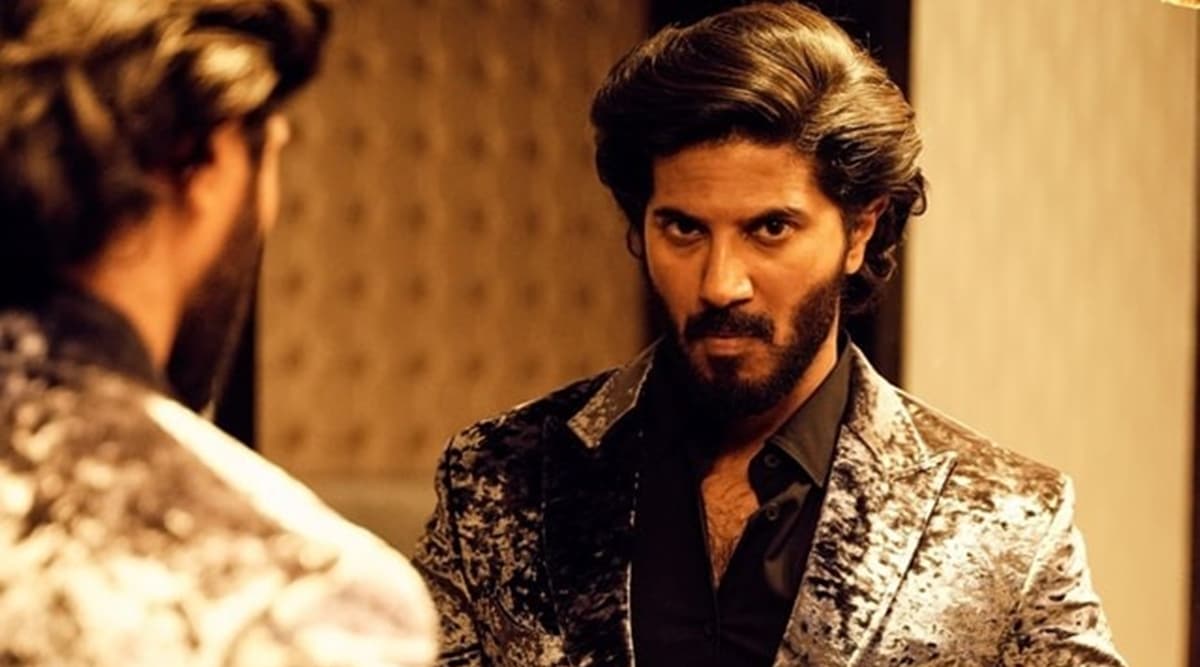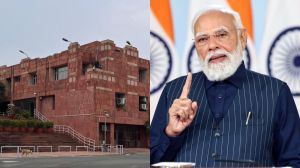The year was 2012. A fortnight after his first film premiered in theatres, a 25-year-old actor visited Devagiri College in Calicut to inaugurate a campus short film fest. In contrast to expectations, he was not welcomed by applause and cheers, but by a war of slogans between the young fans of Mohanlal and Mammootty. Not many paid any heed to him or cared enough to acknowledge his identity. Despite being humiliated in that way, the young actor did not lose his cool. He responded with a graceful smile, launched the event, and posed for pictures with those who requested. Later that day, he tweeted: “Just finished the Manorama short film festival flag-off. Loved the Mammukka vs Lalettan cheering competition!! Honoured that I was invited,” in the nicest way possible.
Cut to 2023: Despite being absent from the film scene for more than 10 months and having not starred in a Malayalam film for well over a year and a half, the same actor’s popularity shows no signs of waning, and his fan base remains unwavering. The entire nation is now eagerly waiting for his upcoming release: King of Kotha. Yes, the actor is none other than Dulquer Salmaan!

While the reason he faced the humiliation in 2012 was the fact that he’s Mammootty’s son, 11 years down the lane and 34 films later, Dulquer, who turns 40 on July 28, is now one of the most sought-after and beloved actors in the country, having made his mark in four Indian languages.
Deeming Dulquer as a “pan-India star” would be unfair because most actors who were bestowed with this sobriquet had the advantage of a constant influx of major projects and tireless promotions to win the audience’s favour. With the exception of perhaps Kurup, which had a sizable budget, none of his films can be considered massive projects. He has endeared himself to audiences through his on and off-screen charisma and his ability to deeply connect with viewers.
Dulquer is, by all means, a product of nepotism. Being the son of one of the most celebrated superstars in Malayalam cinema, it’s undeniable that DQ’s family background played a significant role in his debut. However, it’s important to note that Malayalam audiences, unlike their counterparts, do not readily embrace ‘nepo kids minus talent’. While the children of established stars may find it easier to enter the film world, their success ultimately hinges on their abilities and skills. Several examples, such as Prem Nazir’s son Shanavas, Soman’s son Saji, and IV Sasi-Seema’s daughter Anu Sasi, serve as evidence of this fact. Nevertheless, it’s inaccurate to claim that nepotism is not there in the industry. A quick look at the names of the youngest generation of actors proves that nepotism remains an active and growing force in Malayalam cinema.
However, unlike the majority of star kids whose debut films merely served as a launching pad without making substantial contributions to the cinematic world, Dulquer’s first movie cannot be dismissed in that regard. Coming at a time when Malayalam cinema was undergoing a significant transformation, Srinath Rajendran’s Second Show (2012) was a neatly executed noir gangster film, depicting the tale of small crime gangs in the obscure corners of Kerala. The film not only marked the directorial debut of Srinath Rajendran but also introduced actors Sunny Wayne and Gauthami Nair alongside Dulquer. Second Show was not a grandiose cinematic spectacle or a typical safe-zone romantic comedy, instead, it resonated deeply with the changing trends within the industry. Dulquer’s impressive portrayal of the character Lalu in the film received widespread acclaim, and it served as a good stepping stone.
In the same year, he starred in two more movies that presented starkly different tones from Second Show. While Anwar Rasheed’s Ustad Hotel had Dulquer playing the role of a spoiled NRI youth who discovers the true meaning of life through his grandfather, in Roopesh Peethambaran’s Theevram, the actor portrayed a young musician seeking vengeance against the man who murdered his wife. “My role in Theevram is nothing like what I have done before. I don’t want to get into a comfort zone. I am getting characters of varying shades, which I believe will help me grow as an actor,” Duqluer said during a conversation with Rediff.com India soon after the release of Theevram.
However, contrary to his ambition, Dulquer, unfortunately, started portraying characters that seemed to be cut from the same cloth in several subsequent movies, except for Amal Neerad’s segment Kullante Bharya in the anthology film 5 Sundarikal which presented a previously unexplored artistic side of the actor. Here, he portrayed a youth confined to a wheelchair, observing the pettiness of those in his housing complex through his window, like Jeff from Alfred Hitchcock’s Rear Window. Despite having no dialogues on-screen or moments that contribute to the overall narrative, Dulquer’s composed performance brought to life a helpless and ubiquitous character, leaving the audience reflecting on their own experience as spectators.
Story continues below this ad
However, in Martin Prakkat’s ABCD, Dulquer portrayed a ‘distressed dude’ character reminiscent of Faizal from Ustad Hotel, while Sameer Thahir’s Neelakasham Pachakadal Chuvanna Bhoomi (NPCB) also featured him in a role with similar traits but more depth. Though his appearance and dashing style in NPCB received much recognition, his performance lacked any remarkable moments, mainly due to the narrative’s limitations. Alagappan’s Pattam Pole, Sharath Haridas’ Salalah Mobiles, and Balaji Mohan’s Vaayai Moodi Pesavum, which marked the actor’s Tamil debut, heavily relied on his charm and cuteness, offering little opportunity to showcase his true talent.
The year 2014 saw Dulquer’s career fluctuating between major ups and downs. After Salalah Mobiles and Vaayai Moodi Pesavum, DQ returned with two blockbusters back-to-back. While in Anjali Menon’s Bangalore Days, there were hints of his NPCB character, Dulquer adeptly captured the hearts of moviegoers with his portrayal of a new-era angry young man, which was totally unlike the similar characters from past decades. His character’s life struggles were rooted in being raised in a dysfunctional family, leading to a sense of detachment from most aspects of life, including people, and thus becoming a perpetual ‘problem-maker’. In Lal Jose’s Vikramadithyan too, Dulquer played an angry young man, displaying traits similar to those seen in characters from the 80s and 90s, but with a touch of tenderness. Although neither of these roles relied solely on performance, Dulquer managed to deeply resonate with the preferences of younger audiences, endearing himself to many.
Then, a major disappointment struck in his acting journey. In Ranjith’s movie Njan, based on TP Rajeevan’s novel KTN Kottoor Ezhuthum Jeevithavum, Dulquer took on a dual role – one as a young blogger and the other as a fictional writer-cum-freedom fighter, whose life the blogger is attempting to unearth. Dulquer succeeded in portraying the young blogger, fitting well with the movie’s non-mainstream tone. However, his depiction of KTN Kottoor was highly unsatisfactory. Having been predominantly cast in romantic hero roles, Dulquer struggled to grasp the intricacies of this character, resulting in a below-average performance in the movie. This also prompted many to unfairly compare him to his formidable actor father, Mammootty, and arrive at the unfounded belief that DQ lacks any talent at all. Nevertheless, the film holds immense importance in his journey. While most young actors would have utilised this point in their career to star in mass action movies and bolster their fandom, Dulquer’s decision to take on a performance-driven character in a non-mainstream film is commendable. This served as a stepping stone, allowing him to better comprehend his strengths and limitations as an actor.
Taking lessons from the setback of Njan, Dulquer’s career gained strength with three movies in 2015, solidifying his position as an unmatched charm inducer. In Jenuse Mohamed’s 100 Days of Love, Mani Ratnam’s O Kadhal Kanmani, and Martin Prakkat’s Charlie, Dulquer showcased his charismatic persona yet again. However, unlike his earlier works, these movies didn’t simply rely on his charm but highlighted his growth as an actor, emphasising his evolution in exploring different facets of his acting prowess.
Story continues below this ad
Refusing to confine himself to the comfort of the safe zone, Dulquer once again challenged himself by portraying two highly unconventional characters in 2016 – in Sameer Thahir’s Kali and Rajeev Ravi’s magnum opus Kammatipaadam. Kali offered him the opportunity to establish his stardom with action-packed scenes, but it also demonstrated DQ’s talent for taking on more nuanced roles. His portrayal of a man grappling with anger issues was truly remarkable. Meanwhile, Kammatipaadam holds immense significance in both Dulquer’s career and Malayalam cinema. Arguably the first mainstream Malayalam film to give often overlooked Dalit characters a respectful presence on the cinema screen, Kammatipaadam further showcased DQ’s mastery in handling complex characters. Despite serving as the narrator in the film, DQ’s Krishnan is far from being the conventional hero in the narrative. Yet, his skillful portrayal of the character, without overshadowing others, left an indelible mark on viewers.
Though his subsequent movies like Sathyan Anthikad’s Jomonte Suvisheshangal and Amal Neerad’s CIA did not explore his acting abilities, they still contributed to expanding Dulquer’s fanbase. However, DQ made a strong comeback with three consecutive movies – Soubin Shahir’s Parava, Bejoy Nambiar’s anthology Solo, and Nag Ashwin’s Mahanati – where he demonstrated his impressive talent in portraying characters from vastly different socio-economic backgrounds. His portrayal of Gemini Ganesan in Mahanati was particularly remarkable and stands as one of the most significant performances in his career.
After Mahanati, even Bollywood couldn’t resist featuring DQ in their projects. Despite both Akarsh Khurana’s Karwaan and Abhishek Sharma’s The Zoya Factor being rather mediocre films, Dulquer very skillfully utilised these opportunities to make an impact in India’s biggest film industry. Even with the presence of Irrfan Khan in Karwaan, Dulquer managed to assert his presence and solidify his position as an all-consuming heartthrob. His talent for creating captivating chemistry with co-actors on-screen received much attention in these films.
Cashing in on the traits that garnered him considerable attention and love, DQ took on two more movies – Anoop Sathyan’s Varane Avashyamund and Desingh Periyasamy’s Kannum Kannum Kollaiyadithaal – before embarking on the biggest project of his career. There were doubts among many about whether Dulquer could convincingly portray the character of fugitive Sukumara Kurup in Srinath Rajendran’s Kurup, especially since the actor is known for his captivating presence, which might seem counterproductive when portraying such a despised real-life figure. However, DQ proved everyone wrong and adroitly brought to the screen the morally questionable man, without diluting the vileness in his character.
Story continues below this ad
In 2022, DQ took on four diverse movie projects that explored different aspects of his beloved qualities. While Brinda’s Hey Sinamika capitalised on his charm and depicted the challenges faced by a couple in their marriage, in Rosshan Andrrews’ Salute, the focus was on his composed nature and ability to deliver performances in line with the movie’s tone, portraying a conflicted cop investigating an ongoing case. Meanwhile, Hanu Raghavapudi’s Sita Ramam explored the mesmerising on-screen chemistry he shares with co-actors, particularly women. R Balki’s Chup, on the other hand, leveraged DQ’s charm and applied it to a serial killer, making the character even more chilling, a role that DQ portrayed with great finesse.
What’s remarkable is that his upcoming film, King of Kotha, will be his first full-fledged mass action movie in his decade-spanning career, despite already reigning at the top among young actors in India. Thanks to the unconventional paths he chose throughout his journey, distinct from those of his counterparts, DQ is now poised for a triumphant comeback. The anticipation builds for the release of King of Kotha during the Onam season.




































